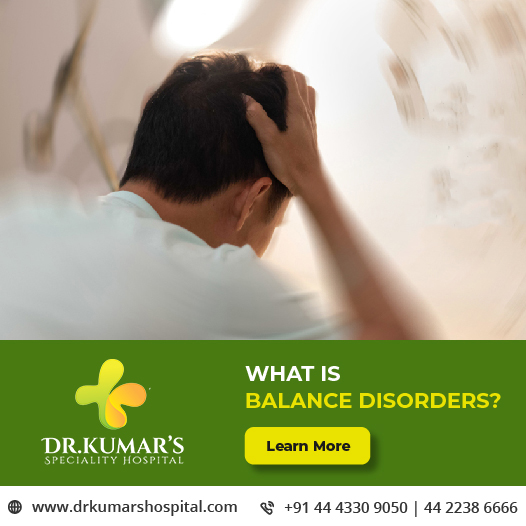
A balance disorder is a condition where a person may feel unsteady or continuously dizzy. Balance disorders may be the result of certain existing health conditions, medications, or problems in the inner ear or brain itself.
Balance disorder not only disturbs a normal life they also affect daily activities and cause lots of psychological and emotional hardships.
Generally, a few types of balance disorders lead to the following conditions.
Vertigo
Vertigo is not just a fear of heights as commonly considered. It is not even a disorder but a symptom or feeling that makes you think that you or the space around you is spinning. This feeling will make you lose balance and make you feel sick to the stomach, especially when you at a height. Doctors attribute it to a condition that affects the inner ear or it may be a brain-related cause.
Benign Paroxysmal Positional Vertigo (BPPV)
Tiny crystals present inside your inner ear fall into one of the fluid-filled canals when there is a shock to your head or due to a fall. Later, when you try to stand or turn your head, the crystals confuse the brain and make you feel dizzy. You will feel nauseated and your eyes may move back and forth quickly.
This condition can last from few seconds to few minutes and goes away on its own. Doctors try to rectify this by suggesting specific exercises that will get the crystals to move out of your ear canals back to their original position.
What is Labyrinthitis?
When you were suffering from severe cold, flu or some bacterial infection the infection may spread to the fluid-filled channels inside your ear too. The inner ear is known as the ‘labyrinth,’ and this helps you keep the balance. The infection in the ‘labyrinth’ causes swelling and in turn, confuses the brain leading to vertigo.
The labyrinthitis can also cause fever, nausea, hearing loss and ringing in the ear or tinnitus. Usually, the infection clears out on its own, but at times, you may need antibiotics to treat the bacterial infection.
Vestibular Neuronitis
Virus infection causes sudden swelling of the vestibular nerve that connects the inner ear with the brain. The disease can make you feel dizzy, unsteady and sick. It can last for hours or even days together. Once the infection subsides, you will get relief from the condition but you may need much bed rest if your symptoms are severe.
Meniere's Disease
This is a health problem that can lead to severe vertigo that lasts anywhere from a few minutes to several hours, accompanied with nausea and vomiting. The condition also causes tinnitus, hearing loss and feeling of a kind of pressure in the ear. Medicines and diet changes, along with balance exercise help to manage the disease.
Due to Medications
Certain medications like antibiotics, antidepressants, antipsychotics and blood pressure medicines or anti-inflammatories can cause vertigo. If you notice any sort of dizziness or balance issues, don’t stop your medications but consult your doctor for any change of medicines to tackle the problem.
Perilymph Fistula (PLF)
When you have an accident or a fall, there can be a tear in the tissue that divides your air-filled middle ear from your fluid-filled inner ear. This immediately leads to balance problems. Usually, your ear starts ringing, feel full or get sensitive to loud sounds. Changes in air-pressure like in a flight can make it worse. The best option is to take a week or two of rest and give the hole a chance to heal. Doctors may suggest surgery if the problem persists even after your rest.
Vestibular Migraine
Certain food, stress and other causes of migraines can inflame the vestibular nerve and lead to vertigo. The result is that you may feel dizzy, sick, sensitive to light and sound and have ringing in your ears. This can be treated with changes in diet, exercise, sleep and medicines.
Neurological conditions
Some diseases like multiple sclerosis, Parkinson’s and cervical spondylosis damage the nervous system and in turn, the coordination with the brain resulting in loss of balance. Physical therapy will help manage the condition.
